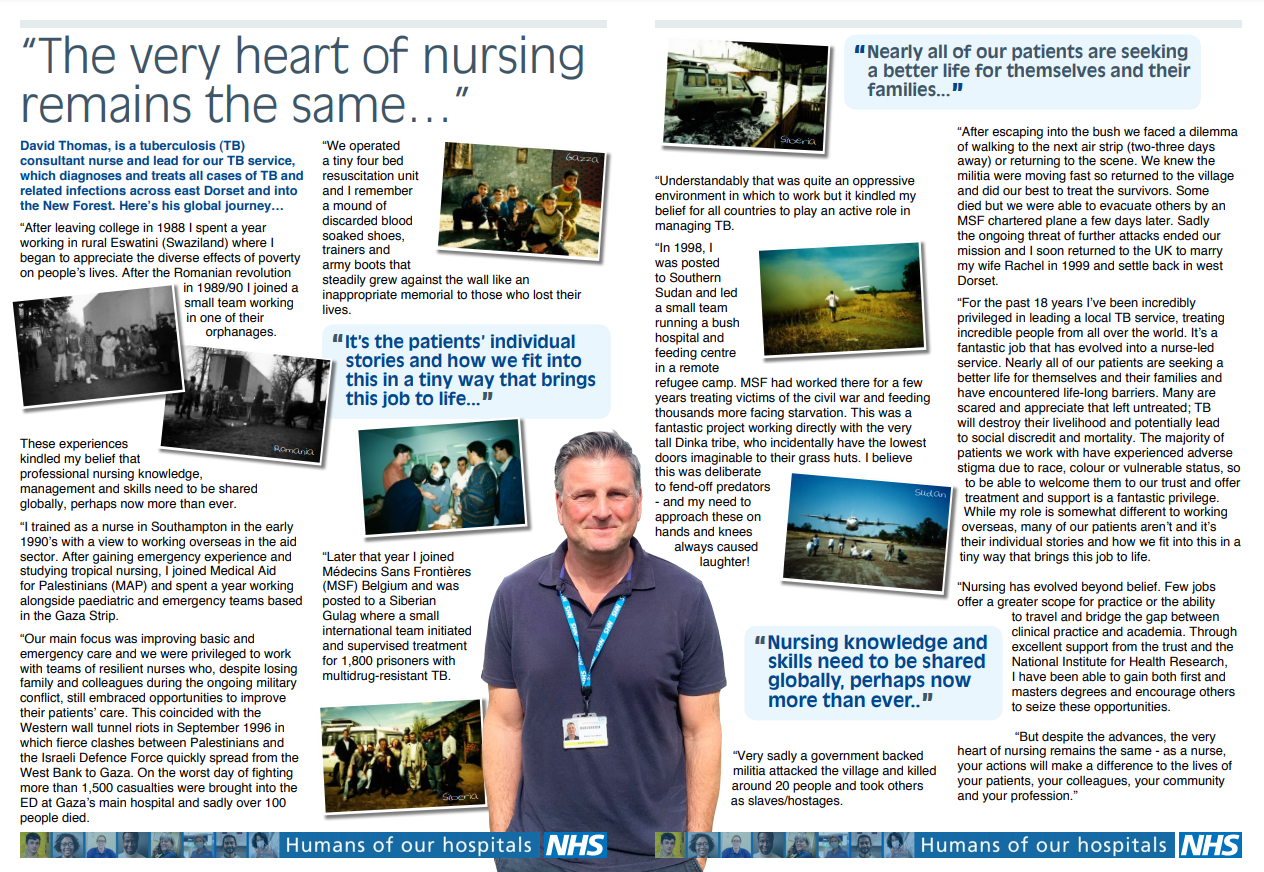Transgender Day of Remembrance 2020: Chloe's story
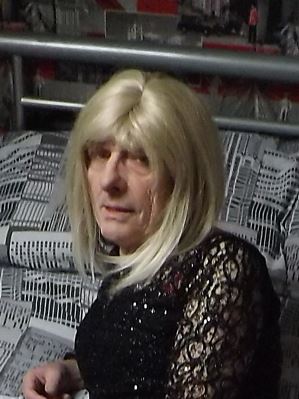
As part of this, we will be sharing staff and patient stories to raise awareness of the diversity in our NHS family.
Chloe, a hospital patient, has told her story below.
"I first knew I felt different at eleven years old. I had just started upper school and coming from a family of eight children, I would sometimes be left having to borrow my sisters school shirt; this was enjoyable for me and I realised I felt good about myself in girl's clothes.
Growing up I did not understand what identity I was; I didn't identify as being female at the time however I knew something was different.
When I was thirteen I moved into foster care which was an all-boys home and therefore I never had an opportunity to dress in girl's clothes, however I continued to have a desire to do so and the thoughts did not leave me. Whilst in foster care, I had some intimate relations with a couple of boys; these experiences brought clarity to me that I had enjoyed this as though I was a female.
As I grew older I continued to have relationships with both boys and girls however there came a time in my life where I felt I needed to have a long-term relationship with a female because I needed to fit into society and be normal. This is when I met my first wife; we remained married for ten years and had three children together.
During this time in my life I began to experiment more and began wearing ladies clothes more frequently however in those days if you were caught wearing women's clothes, you were considered a freak. I felt I had to be married and lead a 'normal' life to fit in as society did not accept transgender people as they do now therefore I felt I was held back and consequently did not access proper support until many years later.
My second marriage allowed me to be more open about my gender. It was easier for me to identify as female. My wife was supportive and would buy ladies clothes specifically for me, however this was behind closed doors and I still felt the pressure to fit into society.
There was one occasion I went out dressed in lady's clothes with make-up and a wig on, but I could not find the courage to get out of the car and ended up coming home again without anyone seeing me. As a result of my identity, my second marriage fell apart and I consequently turned to alcohol just to get to sleep at night. Alcohol quickly became a coping mechanism for me and also helped me to block out my identity issues.
When I was in my forties I approached a private hospital to discuss gender reassignment, however not much came of it and I felt I needed to make the most of what I did have, however I continued to deeply desire truly wanting to be female for many years and still do today.
If you know inside you are feminine, it is difficult to cope with not being so biologically. I just wanted to come out and be a woman but every time I tried different ways it didn't work. A psychiatrist I spoke to some years ago made a joke about it and suggested that lots of men wore woman's clothes. I wasn't able to express enough how it was so much more than just wearing women's clothes. My emotions are deeply saddened by remaining in a male body and I often cry about it.
Fast forward to 25 years later, I found myself under the care of an alcohol service after spending many years trying to numb my emotions with the bottle. As a result of this I have been able to work on the root cause of my alcohol misuse being my gender identity and have had support to complete a referral to gender clinic, have been accessing extra support through charities and feel as though I have been born again.
My confidence has grown, and I now feel confident and proud in telling people my name is Chloe. Although I biologically still need medical intervention, I feel more like a real woman than I ever have. It is never too late to be who you really are!"
Black History Month 2020: Marcea's story
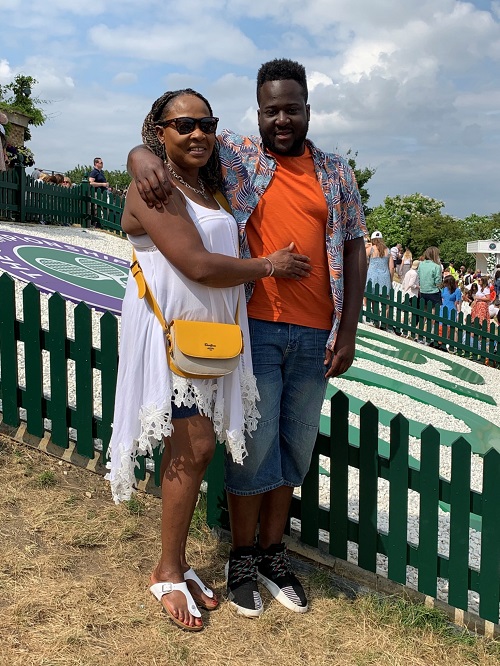
Marcea Green-Williams with her son Dantaé)
"My mum always tells me 'you go MAD', especially if I have a shift the next day, and it means 'you go and Make A Difference'. I love her as my mentor; she's my world. She's the one that literally makes me feel every day when I wake up that I can go through that day. She tells me from a little girl growing up that you can become anything you want and you can be the best person in the world. I have a wind beneath my wings and that's my mum."
This October, University Hospitals Dorset are celebrating Black History Month. As part of this, the BAME staff network will be sharing staff stories to raise awareness of the diversity in our NHS family.
Marcea Green-Williams, deputy sister on the treatment and investigations unit and works in the deep vein thrombosis clinic at Royal Bournemouth Hospital, talks to us about her job, her inspiration, her family and what she wants to celebrate this Black History Month.
"Maya Angelou is one of my heroes. She is very inspiring. There are things that she speaks about that pick me up from a dark place. She always encourages me to rise and not to stay down. With her past and who she became, she is really inspiring to me.
I am very family orientated, I love my family. I speak to my mum every day. She lives in America. She is the last person I speak to every night before I go to bed.
My mum thinks this job is my 'calling'. As a child she qualities in me that made her think I would become a nurse. She is also proud of me as my dad died when she was pregnant with me. He died in a motorcycle accident. My dad was a principal for a high school in Jamaica and she thinks that my aspirations, and the fact I am very academic and always striving to achieve, reminds her of my dad and I am the closest she can get in memory of him.
At the age of 11 years I took home the gold medal for singing the hymn "Amazing Grace" at a speech, singing and drama festival. This would be the beginning of the many awards I would be blessed with. I migrated to the UK and after a few months, I enrolled on a fashion course at Southgate College in London. At the completion I was awarded the Eastman Award for Excellence. I then went on to the London College of Fashion, now The University of Arts, where I achieved a Bachelor of Arts degree in Fashion Design and Technology. While at the London College of Fashion I also won an award for the best design for Teenage Cancer Trust. After graduating I went on to work in bridal wear.
After a few years working as a designer I felt the need to return to what I called 'my calling'. Following my interview I then enrolled on a nursing degree program. After three years of studies I was received a first class honours in Adult Nursing and had the honour of giving the valedictorian speech at the graduation ceremony. Post registration I worked in Oncology at both Royal Marsden and Princess Grace Hospitals in London. I also have palliative care experience working at the North London Hospice for 18 months. I moved from London down to Bournemouth for my son, Dantaé, in 2014.
Working in this hospital I have suffered a lot of indifferences and some of them have been because of racism and unfair treatment. I spoke at our Black Lives Matter forum about some of them. In other areas of this hospital I have had people who have been extremely supportive of me. Certain people have been a tower of strength to me and helped me to stay here and not run back to London.
When I was at the Marsden Hospital in London I didn't see myself as a black nurse. London is so multicultural and everyone is open-minded. But down here I see myself as a black nurse. It's different living down here. I won't change where I live though, because I love the countryside - it's the closest I can get to Jamaica with the beach. We grew up in central Jamaica, but my mum is from the Western side near Montego Bay. Every Sunday we would go to the beach at home after church, so the beach is a constant for me. I used to enjoy evening time at the beach, watching the sunset.
Within a year I lost three family members. When I started here in this Trust I started as a nurse practitioner in Urology, then in about 2017, I was redeployed. During that time, I lost my grandmother to heart attack – she was 97. Right after that I had to fly over to America to an emergency surgery for my step-dad; he had a craniotomy. Then coming back here two weeks later, I lost an aunt – my mum's sister, who was my favourite, due to Leukaemia. I came back home from seeing her in America on a Friday and came back to work on the Monday. My aunt had died on the weekend. I struggled. That was the time everything was going bad.
I thought I was healed, but just recently I realised I wasn't. This year my mother lost another brother to prostate cancer at end of August and then all those bad memories just came flooding back. It just hit me again. I was covering a grievance hearing as a Royal College of Nursing rep – it was because of unfair treatment and it was upheld. I was so happy something good came out of that I broke down in tears. Then I just opened up and told my story; they couldn't believe I was still standing. I feel better now that I have spoken about it.
During the time I was grieving, there were colleagues who gave me support. In the middle of it all I have had days when I could smile.
Just last Thursday we lost someone from the unit and the daughter came in with flowers and a card for me. I was like 'I should be taking this to you; you've lost your mummy'. She said: 'No, my mum used to look forward to coming here and she talked about you every day. She said: 'I know this is personal, but this is a scarf that you said she was always happy in when she wore it. She wanted you to have it."
All the people that gathered around when she said that – they were all moved. I said I was very sad, because I had just lost someone as well, but I wasn't at the point when I wanted to cry, because the last time I looked after her she was the happiest I have ever seen her. She was glowing. Something said to me 'she looks so well' and I blew her a kiss and said told her to take care. I said my goodbyes without knowing. That was the last I saw her.
It showed me my purpose is beyond how I feel about how people treat me. It's beyond that. It's getting to the point where you can overlook it or you can get over it and think this is my purpose. I have a wind beneath my wings and that's my mum. I feel I have a job to do and that's not to let my dad down, even though I never met him. And to let me mum feel I am carrying on his legacy.
People think Black History Month is all about slavery, but for me it is about achievement and how far people have come. It is about being different and the best and being forgiving. To celebrate it, you look back at history and you could get angry. You could hate. But I look beyond that and look at what has been achieved; what has come out of the bad. From people who were once enslaved to those who have risen to high positions, like Barack Obama or examples such as Oprah Winfrey and Maya. I have seen nurses in this country who have achieved so much; Donna Kinnair who is RCN president as example.
People should not be judged by the colour of their skin, but the content of their character and the difference they want to make to the world.
I am very ambitious and a very proud mother, daughter, sister and black woman. I endeavour to continue to strive for excellence which is the essence of my existence. I aim always to be a role model and a good example to everyone I meet. I endeavour to stand up always for justice, brotherhood and peace; that this universe my always increase in beauty. I also endeavour to play my part in advancing the welfare of the entire human race."
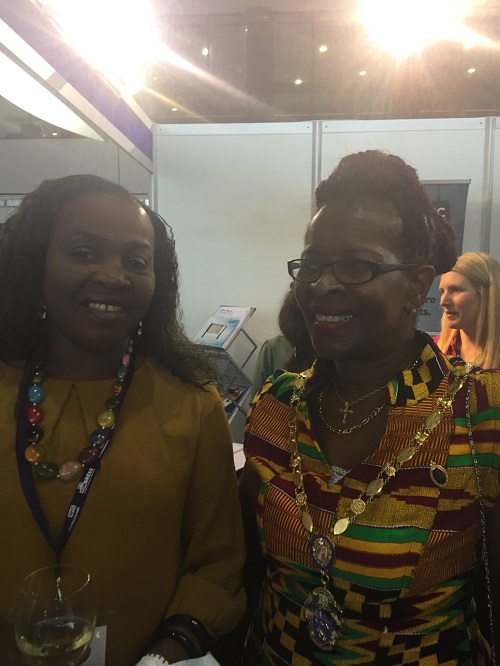
Marcea with Cecilia Anim, who served as president of the RCN in 2015.
Marcea has also completed the Advance History Taking and Physical Assessment and the Non-Medical Prescribing course at Masters Level. She is an accredited representative for the Royal College of Nursing in the capacity of a Steward and a Learning Representative.
Equality, diversity and inclusion
Humans of our hospitals
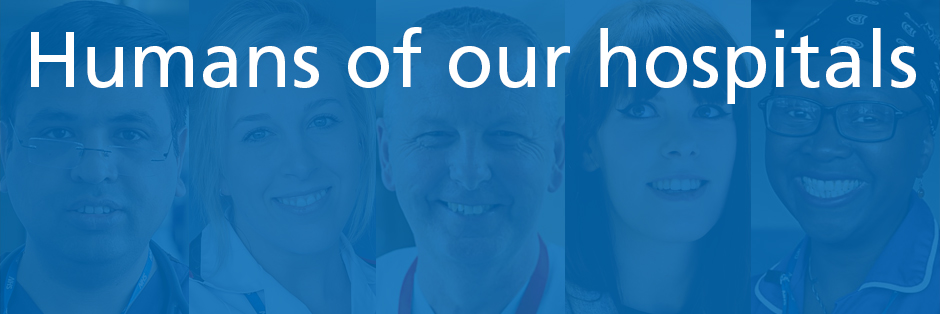
Latest stories
These are the latest stories from the lovely humans who work in our hospitals. Thousands of people work at our trust and we're exploring what makes us all unique and what we share in common as a team - Team UHD. If you'd like to share your story here, email This email address is being protected from spambots. You need JavaScript enabled to view it..
David Thomas, TB nurse consultant: A global nursing career
Trangender Day of Remembrance 2020: Chloe's story
Black History Month 2020: Marcea's story
Black History Month 2020: Shumi's story
Black History Month 2020: Josh's story
Black History Month 2020: Shumi's story
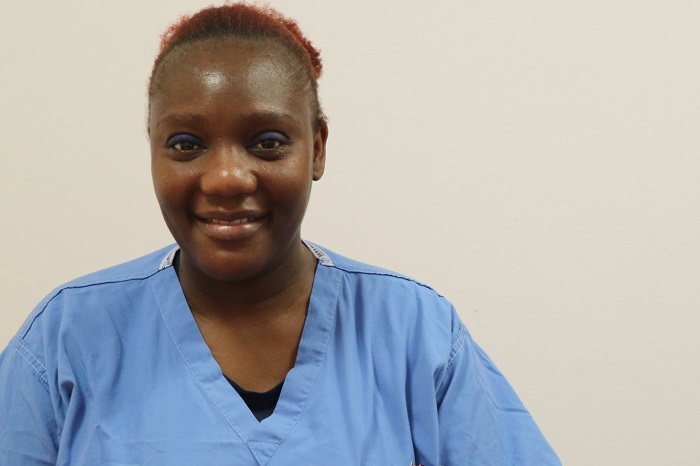
This October, University Hospitals Dorset are celebrating Black History Month. As part of this, the BAME staff network will be sharing staff stories to raise awareness of the diversity in our NHS family.
Shumirai Matereke, Staff Nurse, Endoscopy, at Poole Hospital, talks to us about her job, her inspiration, her family and what she wants to celebrate this Black History Month.
What do you do on a typical day?
On a typical day I admit patients for their various procedures. I also work in the procedure rooms, assisting the endoscopists or supporting the patients during and after the procedures.
What or who inspired you to get into your job?
I wanted a different kind of challenge mixed with a good work life balance after being an Accident and Emergency nurse for 10 years.
Were there any black role models for you to aspire to at the time?
Not when I went for the job, I have been the only black person in the department for the past two years.
Is there a particular moment in time that defines you?
I moved to Australia by myself to further my career in emergency nursing and while I was there I learned I had got to a level where I was confident with my leadership skills, establishing myself in a new place and dealing with adversity as a minority in an unfamiliar place.
Have you had to overcome any racism at work?
I have had to overcome being the only different individual in the department and get over the stereotype that black people try to play the victim when they are underperforming and being overlooked.
What do you want to celebrate the most this Black History Month?
Being a proud strong black professional, despite labels and stereotypes.
Is there something in your personal/ private life that you'd like to share?
My three year old son! My greatest achievement.
Black History Month 2020: Josh's story

"My full name is Joshua Anthony Fitzgerald Lawrence. With my middle name of Fitzgerald being made up of 'Fitz' - the original name of my family and 'Gerald' - the slave name given to us during those times.
"I found this out about my own history about two years ago and although it was a shock at first, I am extremely proud of my name and what it stands for."
This October, University Hospitals Dorset are celebrating Black History Month. As part of this, the BAME staff network will be sharing staff stories to raise awareness of the diversity in our NHS family.
Josh Lawrence, resource coordinator for child health at Poole Hospital, talks to us about his job, role models and what he wants to celebrate this Black History Month.
"On a typical day, I get to work and I often do stock checks and place orders for required stock. I then look to manage any broken or repaired equipment, whether sending for or picking up from repair. I then look to progress any of the many on-going projects the unit has for converting spaces.
"My mother has always worked for the NHS so I knew I would end up here at some point.
Dr King is an obvious choice [of a black role model and source of inspiration]. The amazing things I have read about this man and what he did under the greatest of challenges while still holding himself with such grace was unimaginable. In more recent times I would have to say I have been inspired by Richard Pryor and Dave Chappelle.
While living in London I went to a private school where I experienced racism from classmates. Things got so bad I had to move school because of it. This made me learn from a young age my worth and what are acceptable things to be called and what is not.
Since then I have never accepted any form of racism whatsoever and challenge it wherever I see it. This, for me, would be a particular moment in time that defines me.
When thinking of achievements by black people, I am most proud of my grandfather. He came to the UK in the Windrush generation and lived and worked here for 40 years saving all the time. He then moved to Barbados and built himself a house there and lived out the remainder of his days in peace.
I now own this house and am incredibly thankful for everything he has done for us. He was a truly great man.
I have not had to overcome any racism at work which really speaks very highly of the culture at Poole Hospital.
This Black History Month I want to celebrate that the fight for equality took great steps forward this year. Although I can see where some groups have pushed back as they maybe didn't like the way the message was brought up, it doesn't change the fact that it needed to be brought up and we are already seeing change from it.






